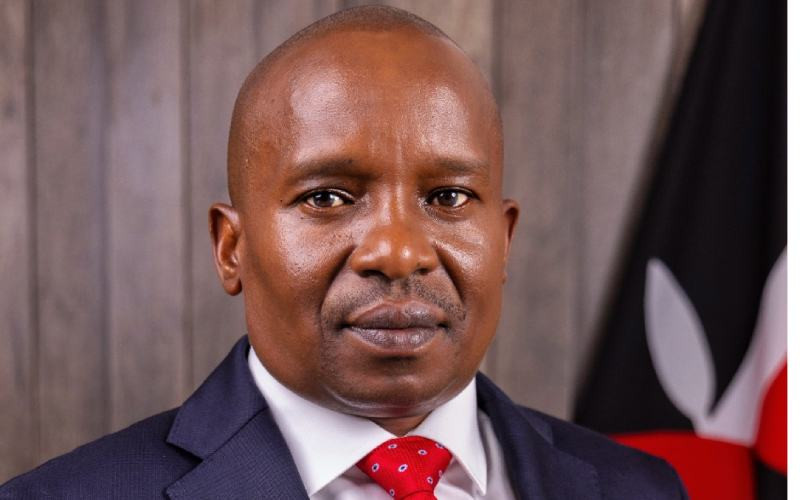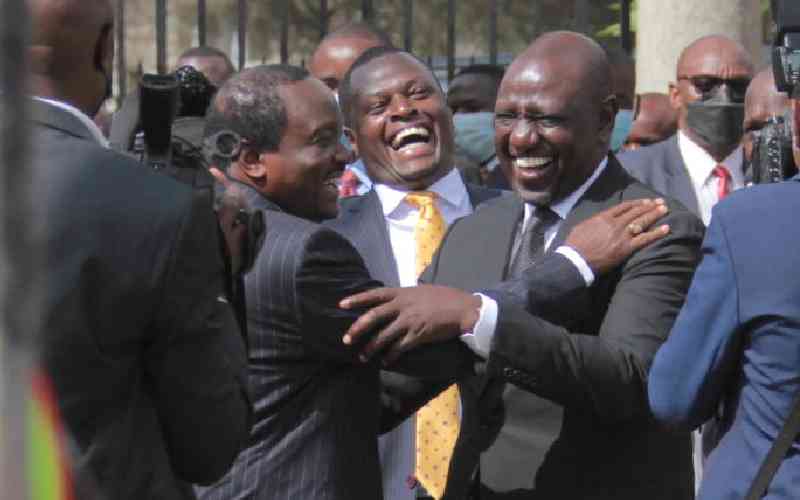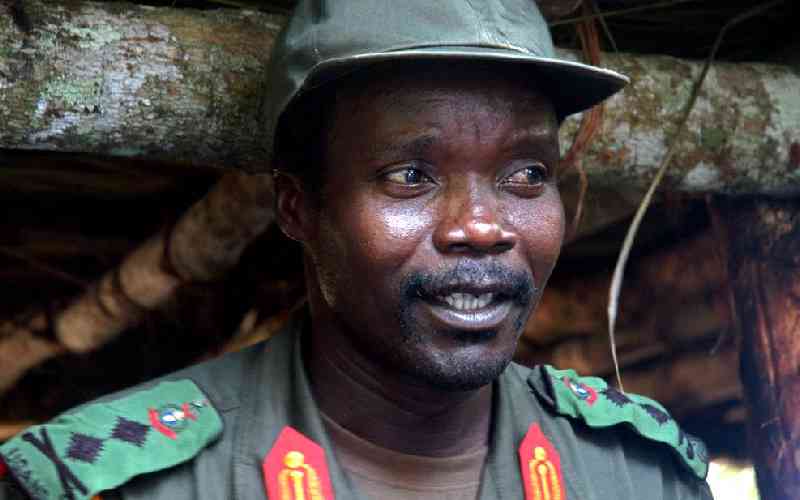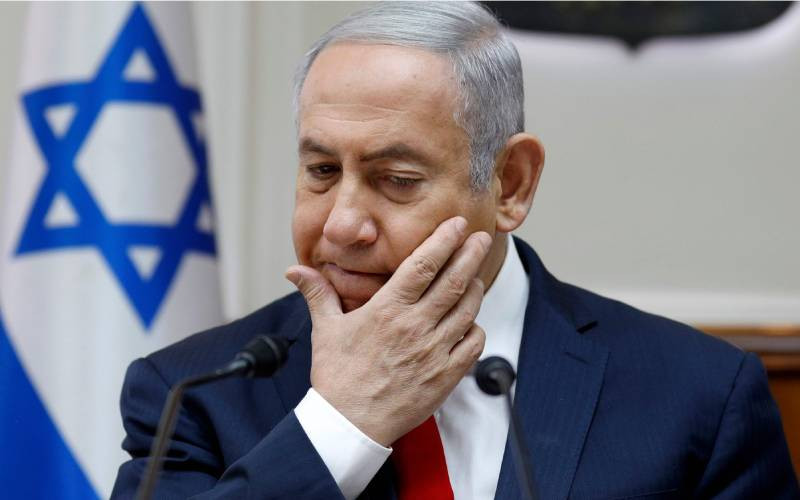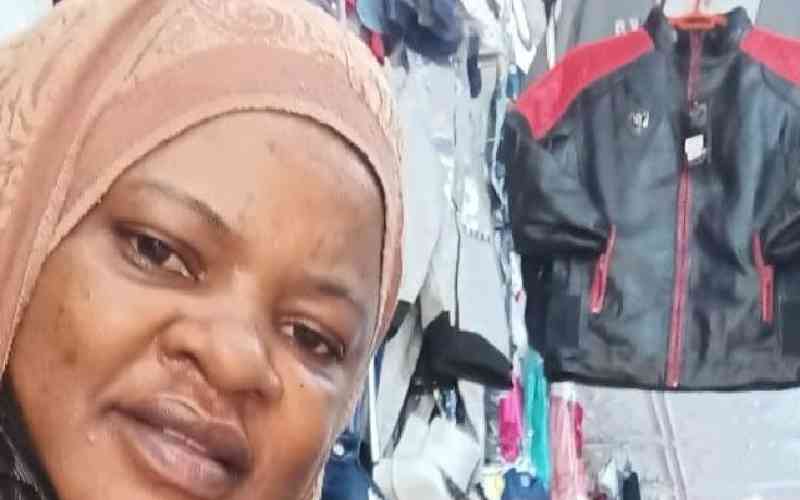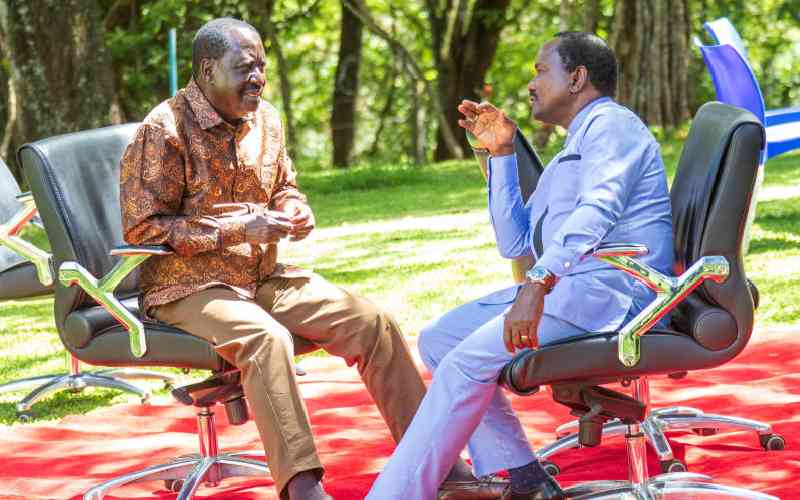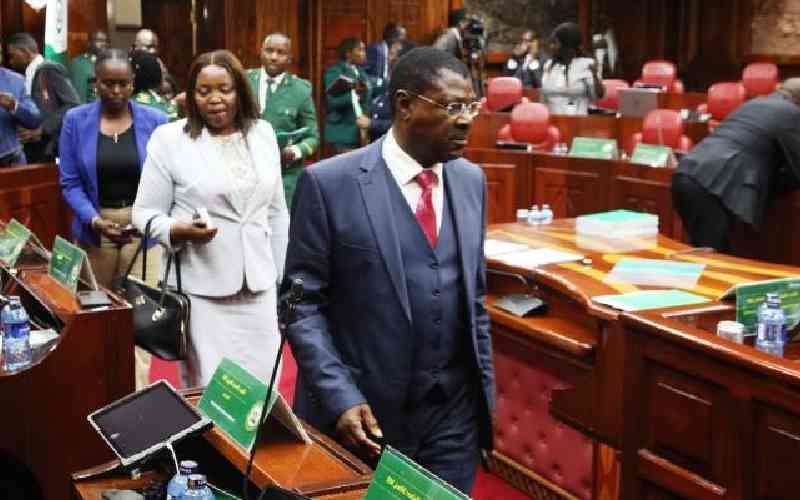As we embrace dilemmas of justice around the 2007/8 post-election violence, there has been a resurgence of the philosophy of Alternative Justice System born in the turbulent years of the 1980s and 1990s, when the integrity of the Judiciary was at ground zero.
In 2006, the Governance, Justice, Law and Order Sector (GJLOS) released findings of its research, which suggested only 4 per cent of the litigating population in Kenya submit legal disputes to law courts, while the rest, about 96 per cent, all prefer informal judicial means.
I have noted that not all of them pursue justice through mechanisms that we now call Alternative Justice System.
Rather, while there is a significant portion of the population in the 96 per cent bracket who use the Alternative Justice System described in Article 159 (2)(c) of the Constitution of Kenya to include Traditional and Alternative Dispute resolution systems, large numbers of Kenyans and people living in Kenya who make claims or engage in contestation in the spaces (like informal settlements, victims of post-election violence, refugee camps and rural areas) are themselves not recognised by the law or have been coerced to accept and ‘move on’.
For those unrecognised by law, the common mantra has been ‘accept and move on’.
While there are many who are compelled by the various layers of inequality to ‘accept and move on’, it is the victims of post-election violence in Kenya who, while in the 96 per cent, are manipulated to take choice-less options.
The option of “moving on”, which has now displaced the idea of justice in terms of retribution, redistribution or litigation, is an expression not quite of forgiveness but much more of layered debate reduced to a choice between “justice and peace”.
“Moving on” is some sort of a mono-language developed by the State to induce further powerlessness among wananchi.
Buried deep in the hearts of wananchi who verbalise the rhetoric “We have moved on” in Kenya are struggles against State authorities committed to maintaining the status quo - corruption, murder, greed, promiscuity, theft, cattle rustling, hate, electoral malpractices and tribalism.
It is therefore evident that to most wananchi (be they protagonists or the aggrieved) during the 2007/8 post-election violence, as a “mono-language”, “we have moved on” is only used to fit the needs, emotions, actions, ambition and ideas because they have been made to feel as aliens in the current context.
The wananchi therefore tend to use the expression “we have moved on” to suggest that they are on a journey about which they have no or only little prefatory knowledge.
In terms of judicial conciseness and action, those expected to ‘move on’ are said to prefer informal judicial means.
They are ultimately left with only two options - to be mute or numb. To be mute is to be silenced as attested in the alleged witness interference cited by the ICC judges in their recent pronouncement.
It seems that in many contexts of judicial claim and more so in the case of post-election violence, most witnesses may have been forced to muteness.
But what concerns me most is the numbness forced on the victims. Framed as a choice between ‘justice and peace’, the cycle of violence and displacements that are now common characters of elections in Kenya and the political culture of impunity is crystallizing numbness.
Stay informed. Subscribe to our newsletter
Numbness and muteness are not good for our project of democratisation and nation building. Confession and “truth telling” about traumatic experiences like those that happened in Kenya even if conducted through Alternative Justice Systems would be therapeutic. Yet, the victims of the 2007/8 post-election violence in Kenya are not part of the 4 per cent who get redress in our courts.
It would be inaccurate to suggest that they have received justice or redress through Alternative Justice Systems.
Rather, this article has established how the dominant political culture in Kenya has supported and given rise to muteness and numbness captured under the phrase and rhetoric “we have moved on”.
What is revealing is that while on the one hand the political elite and those advantaged by Kenya’s political arrangement seem to mobilise and use the rhetoric of “moving on” as a mono-language that enables control over their subjects, the expression
“We have moved on” is used on the other hand by most ordinary Kenyans not quite for muteness but rather as an expression of some sort of numbness.
It is a phrase that speaks to the past, present and future as entangled in a never-ending state of violation of human rights.
 The Standard Group Plc is a
multi-media organization with investments in media platforms spanning newspaper
print operations, television, radio broadcasting, digital and online services. The
Standard Group is recognized as a leading multi-media house in Kenya with a key
influence in matters of national and international interest.
The Standard Group Plc is a
multi-media organization with investments in media platforms spanning newspaper
print operations, television, radio broadcasting, digital and online services. The
Standard Group is recognized as a leading multi-media house in Kenya with a key
influence in matters of national and international interest.
 The Standard Group Plc is a
multi-media organization with investments in media platforms spanning newspaper
print operations, television, radio broadcasting, digital and online services. The
Standard Group is recognized as a leading multi-media house in Kenya with a key
influence in matters of national and international interest.
The Standard Group Plc is a
multi-media organization with investments in media platforms spanning newspaper
print operations, television, radio broadcasting, digital and online services. The
Standard Group is recognized as a leading multi-media house in Kenya with a key
influence in matters of national and international interest.

